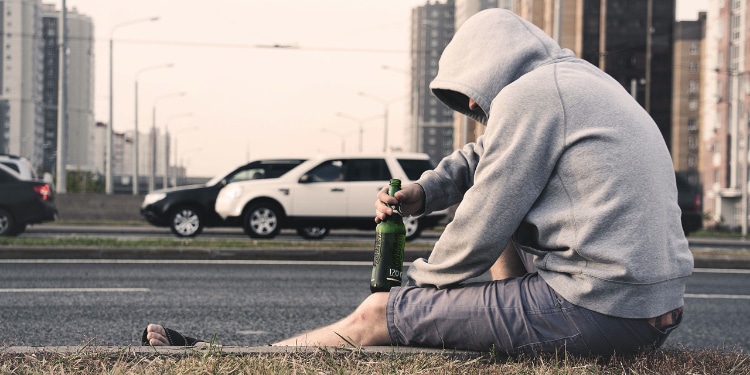











While we all seem to have individual responses to changes in weather depending on our personal preferences, when it comes to heat, there seems to be a more consistently negative reaction among many people. In fact, researchers have found a link between heat waves and increased aggressive and violent crimes (Anderson, 1989). The summer heat can lead to decreased concentration, quality sleep, and energy levels, and increased substance abuse and depression symptoms, all of which seem to be interrelated.

Some researchers suggest that the lack of sleep during hot weather may contribute to depressive symptoms and aggression. Additionally, the internal temperature can also play a role in aggressive behavior. When a person struggles to control their external body temperature, it becomes even more difficult to regulate their internal state, leading to the “fight or flight” response that accompanies violent behavior. Therefore, it’s important to find ways to keep cool during hotter months to manage anger and decrease the risk of violent impulsive behaviors.
We all know that weather can affect our mood; depending on the climate in which you live, a person may have a personal preference for a particular kind of weather. If you get a lot of rain, you may enjoy brief moments of sunshine, and if you live in a predominantly hot, sunny area, you may crave the times when there is some rain or a cool breeze.
The summer heat can be intense; the air can feel thicker, the sun can burn a person’s skin, and people can become generally more irritable as the temperature increases. Researchers have found that summer months are generally associated with more aggressive and violent crimes, and they are constantly trying to assess what may be responsible.

Depression is also often associated with irritability and sometimes more aggressive behavior, not to mention decreased concentration and overall fatigue. So, is it possible that heat waves contribute to an increase in sleep difficulties and this may lead to the depressive symptoms and aggression seen during these months? Some researchers suggest that this may be the case.
In addition to the lack of sleep hypothesis, researchers are also assessing internal temperature in general and how that could contribute to more violent or aggressive behavior. Anyone angry knows that there is a correlation between being “heated” internally and feeling angry externally.
Anger generally starts within the body and involves an increase in body temperature that often facilitates angry outbursts because people cannot tolerate the heat they are feeling inside. Outbursts and other aggressive acts are often used as a way to release the negative and sometimes painful feelings people feel inside when they’re angry.
Those who study anger management and teach people how to regulate their emotions often teach a person to decrease their internal body temperature without aggressive acts as a way to calm down or “cool off.” Deep breathing exercises, muscle relaxation exercises, and other techniques are used to regulate the body’s internal temperature and improve the ability to manage their often impulse-driven aggressive behavior.
From an evolutionary perspective, we have developed some survival instincts that have helped the human species survive over time; these usually involve protection mechanisms like being able to keep ourselves physically safe and healthy (finding food, finding a safe place to sleep, etc.). If a person feels that they are in a place where their safety is at stake, they often experience a deep, evolutionary response that scientists call a “fight or flight” response. This means that a person will either fight off the threat, or they will try to escape it in whichever way they can.
So, when a person cannot escape intense heat temperatures, their bodies may go into survival mode and choose to engage in more aggressive behavior, attempting to protect themselves from the uncomfortable feeling they experience in the heat.
No matter what the reason is, managing anger during hotter months is more of a challenge. Knowing this can help people who struggle with aggression or violent impulsive behaviors to work to prepare themselves by decreasing the amount of time they spend in excessive heat. Professionals suggest finding ways to keep yourself cool in the warmer months, staying indoors as much as possible, and drinking more water to help regulate internal body temperature.
Sources